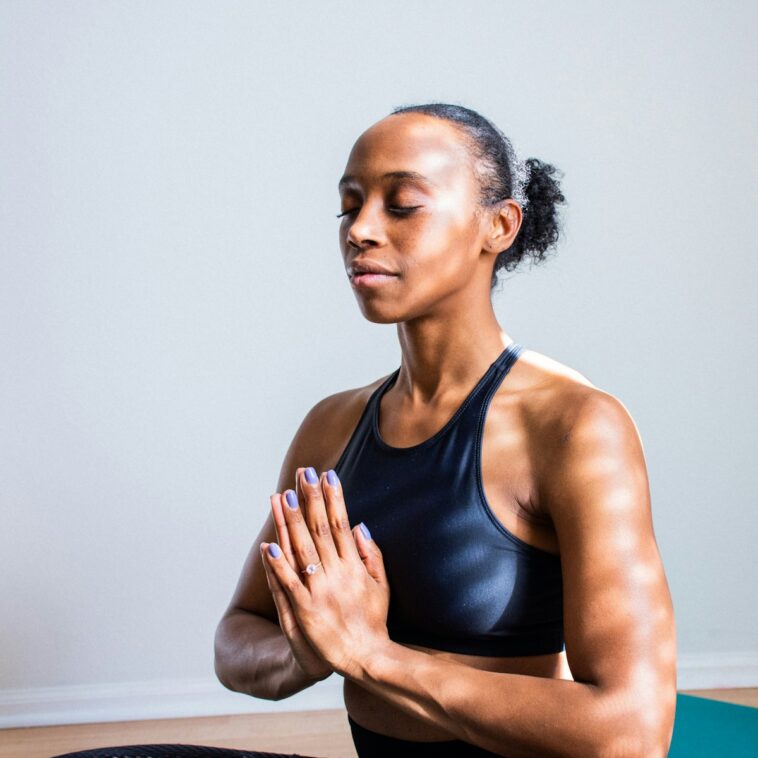Starting something new is never easy—especially when it comes to building a business. But if you’re passionate about health, mental clarity, fitness, or helping others feel their best, the wellness space is full of opportunity.
The industry is thriving, and it’s not just a trend. More people are prioritizing wellness—physically, mentally, emotionally—and they’re looking for trusted businesses that can support that journey.
Here’s the cool part: You don’t need a massive investment or years of business experience to get started. You just need a smart idea, a real passion for wellness, and the willingness to take the first step.
In this post, I’ll walk you through 10 wellness business ideas that can work, give you insight into what they involve, and share a few tips that can help you feel confident about getting started.
Let’s get into it.
1. Health Coaching
This one’s becoming more and more popular—and for good reason. A certified health coach helps clients reach goals like better nutrition, sustainable weight loss, stress management, and healthy habits.
You don’t need to be a dietitian or a doctor to do this, but getting certified from a trusted place (like Institute for Integrative Nutrition) is important.
It’s perfect if you’re passionate about helping people make long-term lifestyle changes and want to offer support and accountability.
2. Online Fitness Training
The pandemic changed everything about how we work out. Even now, people love the flexibility of working out from home.
If you’re a personal trainer or just love fitness, creating online classes—live or pre-recorded—can be a great business.
Platforms like Trainerize or My PT Hub let you manage clients, schedule workouts, and deliver programs all in one place.
And you don’t need a massive following. Just 10–20 loyal clients paying monthly can become a sustainable income stream.
3. Wellness Retreat Planning
People want to disconnect, recharge, and spend a few days focused on self-care. That’s where wellness retreats come in.
If you’re organized and love creating experiences, you could start a business planning and hosting retreats.
It doesn’t have to be on a fancy island, either. Weekend retreats in quiet towns or nearby nature spots work just as well.
Think yoga, meditation, healthy meals, and mindset workshops. You can partner with local chefs, coaches, or yoga instructors and build something amazing.
4. Guided Meditation & Mindfulness Coaching
Apps like Calm and Headspace made meditation huge, but there’s still so much room for more personal, guided support.
If mindfulness has changed your life, you can help others build a practice through 1:1 coaching, workshops, or audio sessions.
You can host weekly Zoom meditations, create a podcast, or sell downloadable meditations on Insight Timer.
The key is to make it approachable for beginners and relatable for people who feel overwhelmed by daily life.
5. Plant-Based Meal Planning & Prep Services
The interest in plant-based eating keeps growing. But most people don’t know where to start. If you love food, cooking, and nutrition, you can create custom meal plans, recipes, or even local meal prep delivery services.
There’s also the option to run it fully online. You could sell digital meal guides, grocery lists, and prep plans through your site or on Gumroad. Use social media to build trust, show your food, and connect with people looking for healthier options.
6. Holistic Skincare & Body Products
People are becoming more ingredient-conscious and want skincare that feels safe, natural, and effective.
If you have a background in herbalism or love experimenting with homemade beauty products, this can turn into a powerful business.
From body scrubs and face oils to wellness-focused items like bath soaks or calming sprays, the market is strong—especially when you focus on a niche like sensitive skin, stress relief, or hormone-friendly skincare. You can sell on Etsy, at local markets, or through your own site.
Just make sure you’re compliant with labeling and safe ingredient use.
7. Corporate Wellness Consultant
Companies are realizing how much wellness impacts productivity and job satisfaction. If you’ve got experience in HR, coaching, or workplace mental health, becoming a corporate wellness consultant could be a great move.
You can offer workshops on burnout prevention, workplace ergonomics, stress reduction, or team-building through mindfulness. It’s also a smart niche if you want to scale your impact and work with groups rather than individuals.
8. Wellness Blogging or Content Creation
If you’re good at writing, designing, or sharing on social media, you can build a business around content.
Brands are constantly looking for creators who can write, shoot, or speak about wellness in a way that connects with real people.
You can also monetize your own content through ads, sponsorships, courses, or affiliate links. Platforms like Substack or Medium are good places to start sharing ideas and building trust.
9. Yoga Instructor or Studio Owner
Yoga is one of the most searched wellness topics out there—and still growing. Becoming a certified yoga teacher can open the door to classes in person, online, in offices, or even on retreats.
If you’ve got the vision and space, opening a small yoga or movement studio in your community can be both fulfilling and profitable.
Online yoga teachers can also use Patreon, YouTube, or their own website to offer memberships and exclusive content.
10. Sleep Coaching
This might surprise you, but sleep coaching is a real thing—and it’s booming. So many people struggle with sleep but don’t know where to turn outside of apps or medication. Sleep coaches help clients understand their patterns, create better routines, and reduce nighttime anxiety.
There are online certification programs to help you learn the science of sleep and how to coach clients 1:1 or in groups. You could even focus on certain groups like new parents, shift workers, or high-stress professionals.
Quick Stats You Should Know:
The global wellness economy is projected to reach $8.5 trillion by 2027. (Global Wellness Institute)
79% of consumers say wellness is important, and 42% consider it a top priority. (McKinsey & Company)
Digital wellness (apps, online coaching, etc.) is one of the fastest-growing sectors.
FAQs
Do I need certifications for a wellness business?
For some, yes. Health coaching, yoga, and sleep coaching usually require certification. But others, like blogging or product-based businesses, don’t. It’s all about building trust with your audience and staying within your scope.
What wellness niche makes the most money?
It depends on your model. Corporate wellness, retreats, and high-ticket coaching tend to have higher earning potential. But content creators and product-based businesses can also earn well once they scale.
How can I stand out in a saturated market?
Be specific. Focus on your unique voice, experience, and the people you really want to help. Authenticity beats flashy marketing every time.
Final Thoughts
You don’t have to wait until everything’s perfect. If you’ve been thinking about starting a wellness business—even just a little bit—I hope something in this list gave you clarity.
It’s not just about income. It’s about building something real, something that helps others and feels good to grow.
Which of these wellness business ideas speaks to you the most—and what’s holding you back from starting?





GIPHY App Key not set. Please check settings